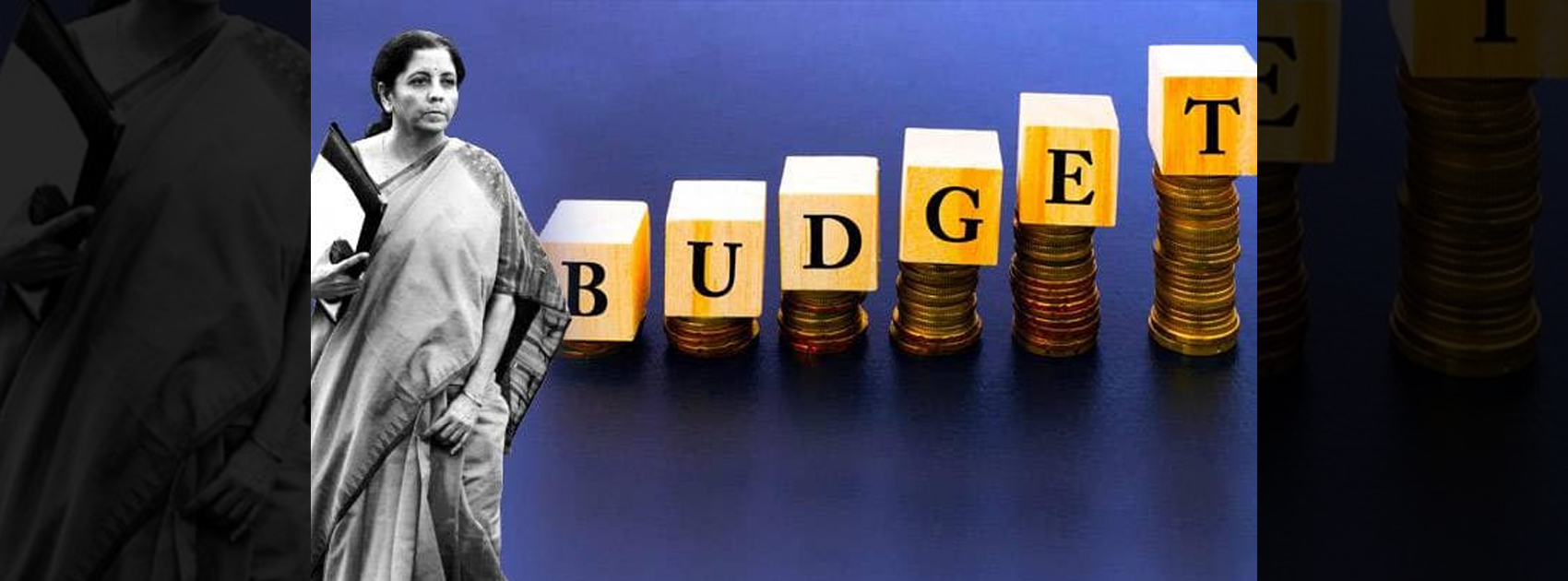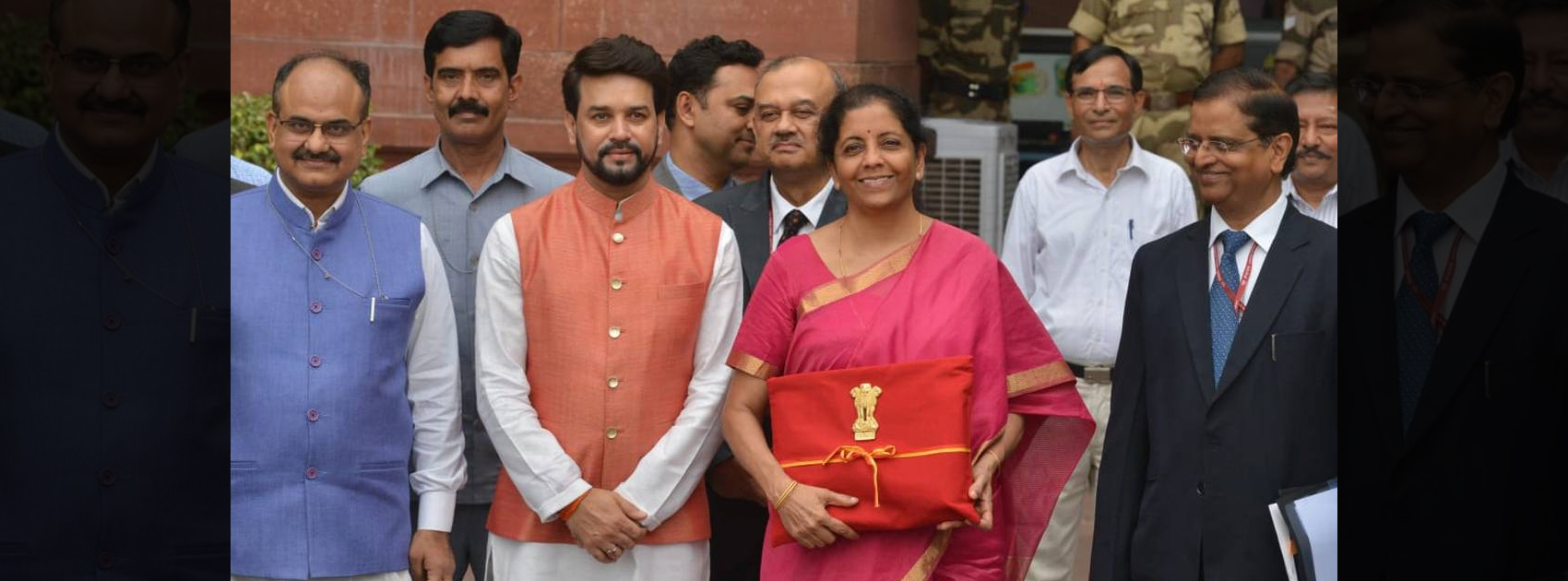Startup News
Union Budget 2019 – Startups Get Major Advantages

The Union Budget of India is mostly about giving us an insight into how the government decides to spend public funds for the overall development of the Country.
India’s Finance Minister, Nirmala Sitharaman, presented her maiden budget to the Parliament on Friday and walked us through the various plans which may take India’s economy to $ 5 trillion by 2025.
The Indian startup ecosystem felt, the Interim Budget, which was helmed by Piyush Goyal in February, had overlooked their problems.
However, giving a major boost to thousands of startups across the Country, the Narendra Modi led Government announced a list of measures the Government is going to take to “release the entrepreneurial spirit” in the Country.
Keep reading to find out what the Budget for new India has in store for business heads and startup founders.
Budget 2019 highlights for startups

1) The Modi Government will soon launch a TV program exclusively for the startups in India, which will air on the Doordarshan channel. This program will serve as a medium through which emerging startups could meet venture capitalists and investors. This TV program will be directed, executed and run by startups themselves.
2) The Startup India Scheme, which was launched in 2016 to support entrepreneurship among women and marginal segments of the society by providing them financial assistance, has produced more than 300 entrepreneurs as of today. Mrs. Sitharaman said, this scheme will continue till 2025. This can prove to be a major boost for aspiring entrepreneurs.
3) A reduction in Goods and Services Tax (GST) and Income Tax for electric vehicle (EV) makers and owners has been proposed in the Parliament. This move could prove to be profitable for EV startups in the Country.
4) Sitharaman announced, startups will no longer be under the scrutiny of Angel Tax. Angel tax is applicable to startups which have raised their capital by selling shares above the market value. This excess capital is considered as income and taxed accordingly, a move which was started in 2012. The waiver of angel tax could be a huge relief for startup owners.
5) The Finance Minister proposed a 100 percent foreign direct investment (FDI) to insurance intermediaries. The FDI limit is currently 49 %. Apart from this, the Government also announced 100 % FDI in single brand retail startups. Startups like PepperFry and UrbanLadder, which operate single brand stores, will benefit from this move.
6) The Government will also establish around 100 business incubators—80 for livelihood businesses and 20 for tech, in the financial year 2019-20. According to the Government, this will help create up to 75,000 skilled entrepreneurs.
7) Businesses with an annual turnover below Rs. 5 crores can file quarterly GST returns, said Sitharaman.
Apart from all this, the several measures announced for labour laws, rental segment and education can have an indirect impact on the startups of our Country. With so many incentives announced to boost the Indian startup ecosystem, we may see a substantial growth in Indian startups.
What is your opinion about Union Budget 2019? Comment below and let us know.
Startup News
Meet the 13 Deeptech Startups Empowered by BIGShift Accelerator in India

India’s deeptech ecosystem has reached a significant milestone with the launch of BIGShift, a premier accelerator programme by Inc42 and India Accelerator designed to empower early-stage startups developing breakthrough technologies. The first cohort comprises 13 innovative startups addressing complex challenges in fields such as artificial intelligence, aerospace, robotics, healthcare, and geospatial analytics. These startups benefitted from specialized capital-readiness training, strategic mentorship, and direct access to investors interested in supporting high-risk, high-reward deeptech ventures, making BIGShift a crucial platform for nurturing India’s next-generation technology leaders.
The accelerator programme uniquely combines virtual bootcamp sessions with a comprehensive two-day in-person masterclass, equipping startups with advanced go-to-market strategies, funding expertise, and a valuable network of experienced operator-mentors. Noteworthy startups from the cohort include ActionSync, focused on enterprise data unification; Polygon Geospatial, delivering AI-powered real-time spatial analytics; Purna AI, which innovates in preventive health through genetic biomarkers; Spacetaxi, pursuing reusable commercial rockets; and VertiFly, specializing in hybrid eVTOL aerial mobility solutions. This diverse group exemplifies the ingenuity and pioneering spirit of Indian deeptech entrepreneurship across multiple high-impact sectors.
BIGShift’s inaugural cohort not only accelerates technological development but also provides critical support mechanisms like pilot project matchmaking, regulatory guidance, and facilitating enterprise collaborations. As these 13 startups transition their groundbreaking solutions from the lab to the marketplace, BIGShift is poised to be a catalyst for deeptech innovation in India, helping transform scientific research into scalable, impactful businesses that will shape the country’s technological future.
Startup News
Tan90 Secures INR 20 Crore to Boost Enterprise Cooling Solutions

Chennai-based deep-tech startup Tan90 Thermal Solutions has raised INR 20 crore (about $2.3 million) in Series A funding, led by NABVENTURES, with participation from Blue Ashva Capital, Capital-A, and 3i Partners. The fresh capital will help Tan90 expand its energy-efficient cooling solutions across India and into Southeast Asia, the Middle East, and Africa.
Founded in 2019 by IIT alumni Soumalya Mukherjee, Rajnikant Rai, and Shiv Sharma, Tan90 develops innovative phase change materials (PCMs) that enable precise, sustainable cooling for sectors like food logistics, healthcare, and pharmaceuticals. Their technology covers temperatures from –50°C to +80°C, offering up to 40% energy savings and a significant reduction in carbon emissions.
Tan90’s Cooling-as-a-Service platform currently operates in eight Indian cities, serving clients like Swiggy Instamart and Kisaan Konnect, with plans to expand further. Recognized by organizations such as the Bureau of Energy Efficiency and UNIDO, Tan90 aims to make scalable, sustainable cooling infrastructure accessible to enterprises worldwide.
Latest News
PayU Gets Final RBI Nod to Operate as Payment Aggregator Ahead of 2025 IPO

PayU India, owned by Prosus, has received final approval from the Reserve Bank of India (RBI) to operate as an online payment aggregator, a year after getting in-principle approval in April 2024. This authorization allows PayU to onboard new merchants and offer digital payment solutions, joining other major players like Razorpay, CCAvenue, and BillDesk.
The RBI’s nod comes as PayU prepares for its planned IPO in the second half of 2025, following a delay from its original 2024 timeline due to market conditions. The company, which serves over 450,000 merchants, reported $319 million in revenue from its core payments and credit business in the first half of FY25.
PayU stated that the approval will help it build a resilient, compliant, and innovation-driven institution, supporting merchants of all sizes and advancing the Digital India vision. The company has also strengthened its risk management and expanded its presence in real-time payments through a strategic stake in Mindgate Solutions.













J88
November 6, 2025 at 4:01 am
Đến với J88, bạn sẽ được trải nghiệm dịch vụ cá cược chuyên nghiệp cùng hàng ngàn sự kiện khuyến mãi độc quyền.
GO88
November 7, 2025 at 4:15 pm
Tham gia cộng đồng game thủ tại Go88 để trải nghiệm các trò chơi bài, poker phổ biến nhất hiện nay.
Kuwin
November 8, 2025 at 6:53 pm
kuwin sở hữu kho game đa dạng từ slot đến trò chơi bài đổi thưởng, mang đến cho bạn những giây phút giải trí tuyệt vời.
站群程序
November 9, 2025 at 8:04 am
采用高效谷歌站群策略,快速提升网站在搜索引擎中的可见性与权重。谷歌站群
谷歌蜘蛛池
November 11, 2025 at 6:29 pm
利用强大的谷歌蜘蛛池技术,大幅提升网站收录效率与页面抓取频率。谷歌蜘蛛池
iwin
November 14, 2025 at 1:33 pm
iwin – nền tảng game bài đổi thưởng uy tín, nơi bạn có thể thử vận may và tận hưởng nhiều tựa game hấp
MM88
November 22, 2025 at 8:13 pm
Với giao diện mượt mà và ưu đãi hấp dẫn, MM88 là lựa chọn lý tưởng cho các tín đồ giải trí trực tuyến.
MM88
November 23, 2025 at 7:54 am
Khám phá thế giới giải trí trực tuyến đỉnh cao tại MM88, nơi mang đến những trải nghiệm cá cược thể thao và casino sống động.